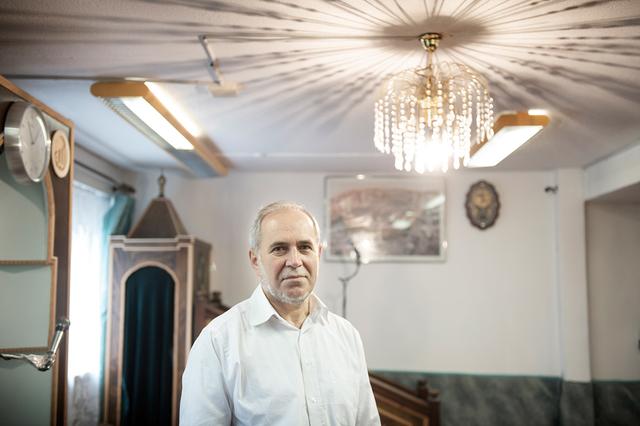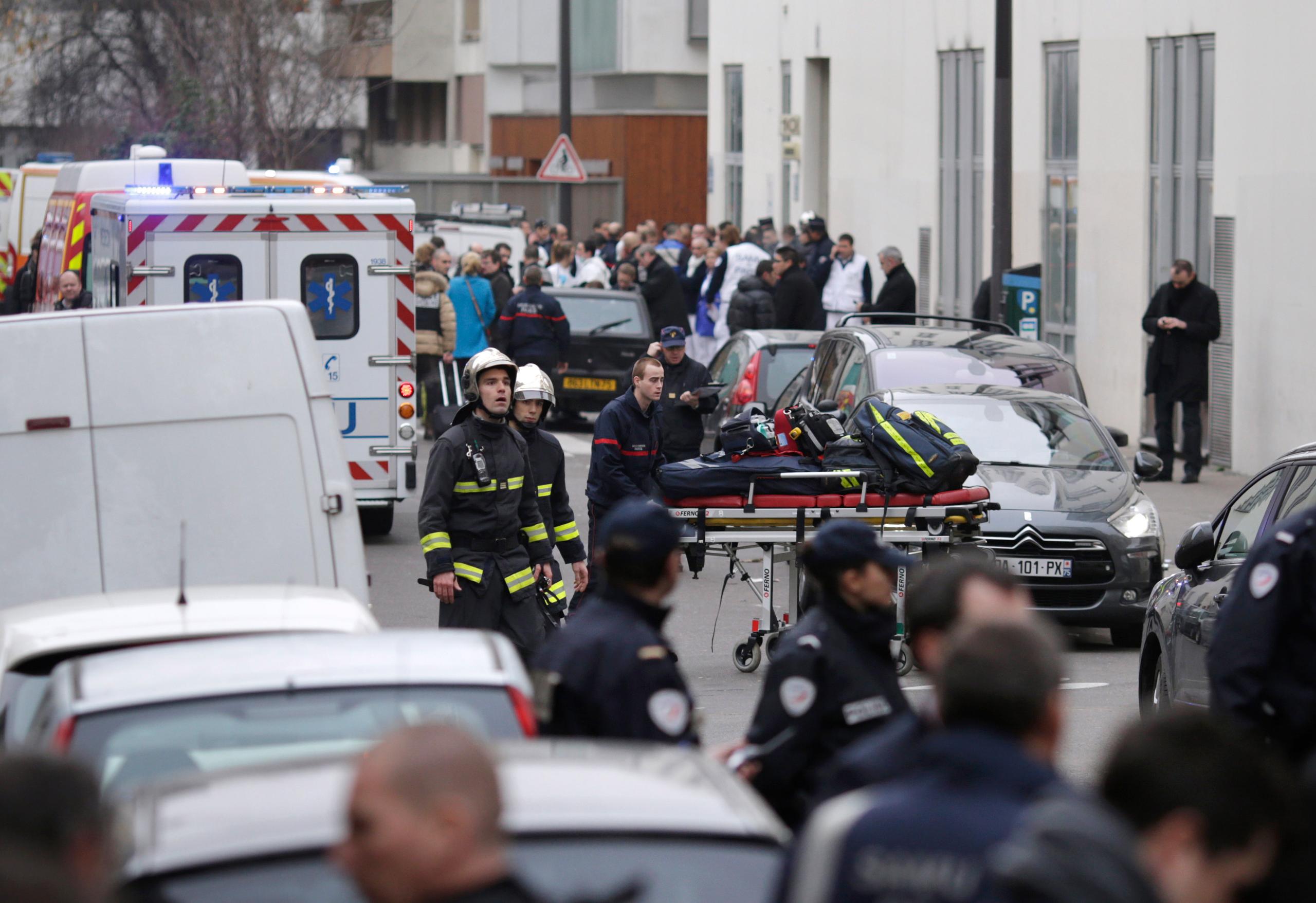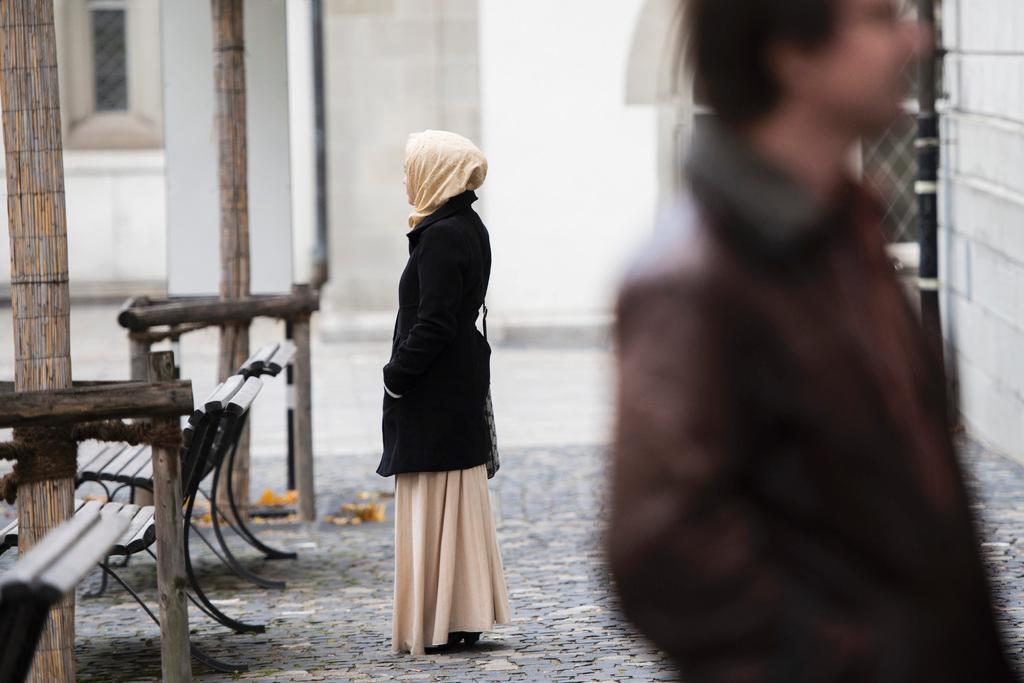‘More Muslims should denounce fundamentalism’

Imam of Bern Mustafa Memeti has been at war with religious fundamentalism for years.
Recently elected ‘Swiss of the year’ by the readers of the Sunday newspaper SonntagsZeitung for his “fight for the cohabitation” of communities, Memeti advocates a liberal Islam that adopts western values without concession.
“I’m afraid that the climate of suspicion and fear will again become more generalised in the times to come,” says Memeti, who hails from Serbia, almost a week after the attacks by Islamic fundamentalists in Paris.
At the forefront of Memeti’s plans is training Muslim preachers in Switzerland and exercising state control over the mosques as a means of fighting radicalisation. In a voice torn with emotion, he espouses with conviction his proposals for Islam in Switzerland.
swissinfo.ch: You have reacted strongly in the Swiss media to the murderous attacks that took place in Paris last week. Was it important to you as a Muslim?
Mustafa Memeti: Such a response was imperative. It was an inhumane and barbaric attack. How could one procrastinate and ring his hands in the face of it? Muslims must be on the front line, and shout their indignation. These acts go against all our principles, all the norms and rules of our faith. Too many Muslims still remain silent, do not denounce fundamentalism or hide their real opinions behind pretty words. That needs to stop.
swissinfo.ch: What role can the imams play, faced with youth who are caught up in religious fundamentalism?
M.M.: Imams play a central role in the community and in the integration of believers in society. Their voices must be more contemporary, progressive and objective. They cannot be satisfied with saying that Muslims have nothing to do with these attacks.
The youth facing failure are the most fragile in the face of retrograde ideologies. It’s up to us to exert a positive influence on them, to diffuse the jihadist discourse that is prevalent on the internet and social media.
It’s very important to underline: as Muslim immigrants in Europe, we have come here for a better life. We want peace, better prospects and opportunities socially and professionally. They are our priorities. The imam should relay these; put them at the forefront.
swissinfo.ch: Can that happen by training imams in Switzerland?
M.M.: Absolutely. We can no longer accept that imams are trained abroad and imported to Switzerland. All the imams should be trained in Switzerland. That needs to happen within an academic framework, as with Christianity. Then they would be confronted with training based on reason, which is essential in today’s world.
University study
The idea of teaching Islam in universities has raised a number of objections. As of September, more than half of the 110 members of the Fribourg parliament had expressed their scepticism about the creation of a Swiss Centre for Islam and Society (SCIS) at the University of Fribourg. The opposition was just four votes shy of the majority needed to block the project. The Swiss People’s Party will decide by the end of January if it will launch a popular initiative against the creation of the SCIS. Attached to the theology faculty, the centre will offer imams training in Swiss politics, law and history.
“It is completely normal that such a process incites suspicion,” says Hansjörg Schmid, head of the centre who began in his role at the start of the year. Initially announced for the end of 2014, the formal opening of the SCIS has been pushed back, confirms Schmid. “We remain convinced that integrating Islam into the University, where it will be faced with other sciences within the interdisciplinary and critical framework, will be advantageous for Switzerland.”
It is of the utmost importance that the imams practise their religion and their faith in line with the values of Switzerland, which are democracy, freedom and again, the rule of law. These values must always be the priority, and without exception.
I have been part of a working group looking at creating a Swiss Centre for Islam at the University of Fribourg (see box), which would be a first in our country.
swissinfo.ch: But there’s a fear that the “perpetrators of hate” could then have access to Swiss universities. The Fribourg project is, for now, threatened with a popular vote…
M.M.: We understand that in a democratic country, opposition emerges within the population and political circles. But we tell them: if you don’t agree, what alternatives do you propose? Where would you want the imams to be trained? Muslims are now a reality: Islam is the second religion of the country behind Christianity. We don’t want confrontation between religions, we want to build a common future.
swissinfo.ch: Not all the imams in Switzerland share your liberal point of view.
M.M.: It’s very difficult to estimate, and that’s exactly where the problem lies. The different Muslim communities in Switzerland are badly organised and do not speak with one voice. A handful of people can decide to found an association, open a mosque and bring over an imam. Each one can deliver his message in the name of Islam. This lack of control is a danger for our democracy and our freedoms.
In the future, no imam should be able to preach without the authorisation of the state. Understand: the freedom of religion is guaranteed in Switzerland and the state cannot dictate what a person’s faith should be. But for the security and the stability of the country, the authorities have the right to interfere in the organisation of the religious communities within their borders. As Muslims, we need the help of the Swiss for that.
swissinfo.ch: It’s a long process.
M.M.: Yes, because the Muslims come from countries and continents that are very different, not to mention the European converts. They don’t necessarily share the same philosophy, the same vision of Islam. That’s why a high council of Islam is more necessary than ever in Switzerland.
swissinfo.ch: Would that mean official recognition of Islam and financial support from the state?
M.M.: Not necessarily. That is perhaps the second or third step. But the first step consists simply of better understanding what’s happening in mosques, of knowing who administers them, which Imam preaches, what kind of Islam, etc.
We also have to promote the moderate voices of Islam in public, those which advocate cohabitation and that do not play to provocation. The influence of Nicolas Blancho’s Swiss Central Islamic Council [a Salafist council that has often stirred controversy] has thankfully receded in recent years, and we are happy about that.
“A better understanding of the situation”
Imam of Lugano Samir Jelassi Radouan, holds degrees in law and theology, a masters in communications, and is a PhD student at the Swiss-Italian University. An intercultural mediator, Radouan is considered one of most highly trained Muslim preachers in Europe. He talks to swissinfo.ch.
“The contact with a university institution allowed me to develop a better understanding of the setting in which I administer my ministry. Imams generally have a good religious training acquired in their country of origin, but they should enrich it further with training modules on Islam and the manner in which they bring it into dialogue with society. Training Imams benefits not only the Muslim community but society as a whole. The Imam is an important figure; he plays a central role in the integration of Muslims. We are working very hard to ensure that young people do not turn to a misguided an extremist version of Islam, but this work is not visible and not recognised enough. In this sense, the communes and integration delegates should collaborate more with the Imams and Muslim institutions.”
(Translated from French by Sophie Douez)

In compliance with the JTI standards
More: SWI swissinfo.ch certified by the Journalism Trust Initiative











You can find an overview of ongoing debates with our journalists here . Please join us!
If you want to start a conversation about a topic raised in this article or want to report factual errors, email us at english@swissinfo.ch.